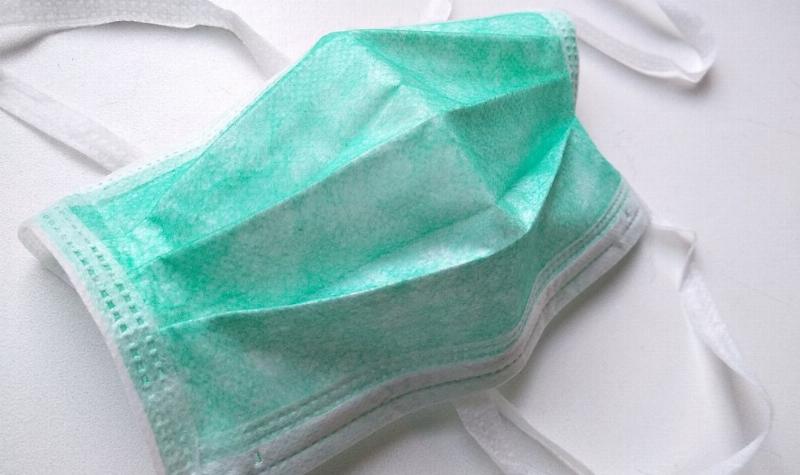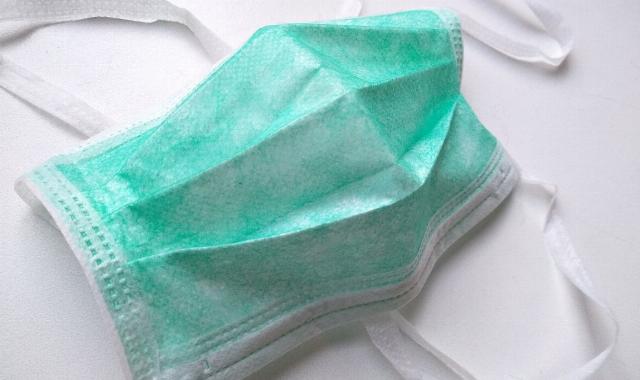


In a tragic outcome on Thursday, after just two hours of deliberations, a jury in Outagamie County Circuit Court in Appleton, Wisconsin sided with Ascension Hospital in the wrongful death lawsuit involving the death of Grace Schara, a 19-year-old woman with Down Syndrome.
Grace died on Oct. 13, 2021, seven days after being admitted with symptoms of COVID-19 to Ascension NE Wisconsin-St. Elizabeth Hospital. Her father, Scott Schara, filed a wrongful death suit against the hospital, alleging medical negligence, violation of informed consent, and battery.
One of the most heart-wrenching details heard in the case was the fact that the hospital allegedly administered intravenous drugs without the family’s specific consent, an action that the family asserted constituted battery. Sadly, in the end, the battery claim was not included on the verdict form, according to local reporting. The judge reportedly “dismissed the claim before the start of jury deliberations,” according to reporting from the Milwaukee Journal Sentinel.
The jury largely rejected the family’s remaining claims. According to the Journal Sentinel,
of the 13 claims answered by the jury in the verdict, only two of them had a dissenter — and there was only one dissenter for each of the two claims. Civil cases do not require a unanimous verdict based on proof beyond a reasonable doubt. Instead, 10 of 12 jurors needed to agree on each claim based on the preponderance of evidence.
The Schara family maintains that Grace died from a lethal drug combination and overdose of Precedex, lorazepam, and morphine, administered under an alleged illegal Do Not Resuscitate (DNR) order. They argued that these aggressive COVID-era protocols, including ventilation, sedation, and Remdesivir, became dangerously commonplace in hospitals across the country during the pandemic.
The day after the verdict, on June 20, the family held a press conference on their front porch, emphasizing the importance of patient advocacy and calling attention to what they see as systemic failures.
“Get online access to the chart and make sure your advocate is looking at the chart in real time, constantly,” Schara urged. Despite his persistent efforts to advocate for his daughter, Schara was ejected from the hospital at least once by Nurse Alison Barkholtz, according to trial testimony.
Barkholtz allegedly referred to Schara as a “visitor,” although he was Grace’s legally designated patient advocate under the Americans with Disabilities Act — a status the hospital itself reportedly acknowledged. Despite this, Nurse Barkholtz testified during the trial that he was “an asshole” and, according to Schara’s account, told him that the “nurses were complaining to her about him and didn’t want him to be there.”
At the press conference, Schara warned that non-consensual DNRs are all too common and happen in hospitals “because they can.” He added, “They don’t have to follow the rules because they know we can’t sue them. They don’t have to follow the law.”
The Journal Sentinel reported that “the suit also sought a declaratory judgment from Judge Mark McGinnis, stating the ‘do not resuscitate order in question and non-consensual injection of certain drugs’ into Grace’s body were in violation of the hospital’s policies and procedures.”
To understand the broader context of this DNR issue, one can look to reporting from Stella Paul for American Thinker in 2023, in which she describes with haunting detail the standardized inpatient protocols followed during the COVID-19 era. Patients were frequently intubated, sedated, and given Remdesivir — treatment that some argue caused more harm than the virus itself.
Meanwhile, activist organizations like Protocol Kills, the FormerFedsGroup Freedom Foundation, and American Frontline Nurses are collecting and documenting stories from bereaved families about what happened to their loved ones when they entered a hospital hoping for healing and, instead, were led to bizarre and tortured deaths.
Paul continues,
I find it heartbreaking to read their stories, which share a haunting similarity, a feeling of being trapped in a highly organized nightmare. The ritual progresses in predictable stages: first, the patient is isolated from family, who are unable to advocate for their loved one or monitor what’s happening. Next, the patient is diagnosed with Covid-19 or Covid pneumonia, even if they came to the hospital because of a broken arm. Then, they’re bullied into getting remdesivir, a highly toxic drug which killed 53 percent of Ebola patients who had the misfortune to take it. Next, according to the California lawsuit, “They are placed on a BiPap machine at a high rate, making it difficult for them to breathe. Their hands are often tied down so they can’t take the BiPap machine off their face.”
“I know this is getting unbearably painful to read but stay with me to the bitter end to memorialize the victims’ suffering,” Paul adds.
As the patients writhe in agony, psychiatrists are brought in to diagnose them with agitation and sedate them. Now, shot up with remdesivir, sedated with drugs that make it tough to breathe against the BiPap ventilator, and strapped down in restraints, the victims are denied food and sometimes even water. Should they try to summon help, they may find the hospital played a vicious trick on them, placing their phone and call button for the nurse out of reach. In the final stages, they are intubated and slowly die alone, left to rot into a skeletal corpse with bed sores. Is this America?
Journalist Michelle Edwards has followed Grace’s case extensively. In 2022, writing for UncoverDC, Edwards published a detailed timeline of Grace’s final day and her tragic last eight minutes of life, based on online journal entries written by her father. Edwards’s latest article, published in The Highwire, offers a compelling overview of Grace’s death, the resulting lawsuit, and the jury trial that began on June 2, 2025.
During the trial, expert witness Dr. Gilbert Berdine testified to the likely cause of Grace’s death (linked here), implicating the hospital’s protocol. During the trial, Grace’s sister also told of having begged the nurse to save Grace’s life, as captured in her video testimony (linked here).
At the press conference, the Schara family emphasized how the current system leaves elderly and disabled patients especially vulnerable. Scott Schara argued that Grace may never have had a real chance of leaving the hospital alive, citing discriminatory attitudes toward individuals with Down syndrome.
In addition, Schara claimed that the COVID-19 inpatient protocols amounted to what he described as “legalized euthanasia,” made possible, he argued, by Section 1553 of the Affordable Care Act. According to Schara, this provision essentially shields health care providers from liability in cases like Grace’s:
You know, I’ve studied this. But this has nothing to do with Grace anymore. At first it was all about Grace. ... You connect the dots and you can see it. ... They want to open up this, you know that I am a crackpot with my research.
But then when I start quoting out of journals. You hear all the objections, objection, objection, right? ... The fact is as there was a study by the American Journal of Genetic Medicine that was done during COVID [studying] 1.7 million patients during COVID.
The odds of somebody with Down syndrome having a DNR on them compared to somebody without Down syndrome was 630% more. To wrap your head around that statistic, what's the reason? Down syndrome people are non-contributing members of society. Look this up yourself. Look at Obamacare Section 1553. Look at it with your own eyes. You can't unsee once you see it. It legalized euthanasia in our country. That’s the fact.
The hospital allegedly labeled Grace a “non-VIP patient,” suggesting that some patients may receive preferential treatment over others in hospitals. Schara has documented the “non-VIP” designation and other concerning aspects of her care at his Substack, “Our Amazing Grace’s Newsletter.”

Image: https://www.nursetogether.com/ via Wikimedia Commons, CC BY-SA 4.0 (cropped).
